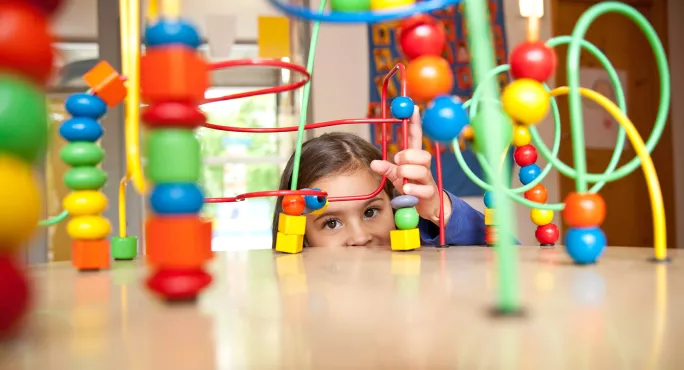- Home
- Early years plans may cut work, but teachers are unsure
Early years plans may cut work, but teachers are unsure

The government’s proposed changes to the Early Years Foundation Stage Profile goals can cut teacher workload but they may not prepare pupils better for key stage 1, according to a new report.
The Education Endowment Foundation evaluated a pilot of the revised Early Learning Goals (ELGs) and found that teachers who took part said their workload was lower due to reduced expectations for assessment and evidence gathering. They also reported that the new ELGs were clearer and more specific than the previous ones.
Related: Proposed changes to EYFS ‘could be detrimental’
Background: Proposed new Early Learning Goals - full details
Opinion: Let’s stop arguing over what EYFS learning looks like
However, there were mixed views about whether children would be better prepared for KS1 because of the changes, and if they were more or less challenging than the earlier ELGs.
New Early Learning Goals
The EYFSP assesses pupils’ development at the end of Reception across 17 ELGs, grouped under seven learning areas that include communication and language; personal, social and emotional development; physical development; literacy; maths; understanding the world; and expressive arts and design. Teachers complete the profiles based on their observation of pupils’ development.
In 2018, the Department for Education proposed changes to the ELGs, designed to improve outcomes at age 5. They also aimed to focus on language development, especially for the most disadvantaged children.
The DfE commissioned the EEF to evaluate the pilot of these changes in more than 20 schools, led by a team of researchers from the National Centre for Social Research. The independent evaluation included an online survey, interviews and in-depth case studies for a sample of the schools.
The evaluation was published today as the DfE launched a public consultation on the planned reforms. This will allow those working in the sector to share their views before the revised Early Years Foundation Stage framework, including the ELGs, is made compulsory from September 2021.
The proposals aim to boost speaking, communication and vocabulary; raise standards; and tackle the “word gap” between disadvantaged children and their peers. But the EEF found the revised goals by themselves “were not felt to be sufficient”, as teachers required supporting materials, such as exemplification and curriculum guidance.
Call to early years staff
Beatrice Merrick, chief executive of Early Education, urged the early years sector to respond to the consultation.
“Early Education and other sector bodies have worked hard as a coalition to inform and influence the DfE as the draft was prepared, but we believe there is still room for considerable improvement in the text of the educational programmes and early learning goals,” she said.
“It is vital that the DfE hears from those who work with the current statutory framework and non-statutory guidance on a daily basis about what will work and what will not work, as the ultimate test of these documents is whether they help practitioners in the EYFS to give children the best start in life.”
Early Education is among a coalition of organisations from across the sector that warned that the evaluation only looked at “a very limited sample” of schools.
“We believe it needs feedback from a much wider range and number of practitioners, teachers and leaders about whether the proposed changes will improve the delivery of the EYFS and achieve the government’s key goals around improving communication and language and reducing workload,” a statement from the coalition said.
It also shared a summary of key issues identified from its own research into the proposed changes.
Schools minister Nick Gibb said: “It is encouraging that this early years pilot showed that teachers are spending less time on unnecessary paperwork and more time interacting with the children in their care. This will help with the language, literacy and communication skills they need to fulfil their potential as they begin school and beyond.
“We will be rolling out these improvements to all schools from September 2021, so that pupils and teachers all over the country benefit from the positive changes seen in the pilot stage. The consultation launched today will help make sure the Early Years Foundation Stage framework will make a difference to a child’s education as they move through the early years to more formal schooling.”
Keep reading for just £1 per month
You've reached your limit of free articles this month. Subscribe for £1 per month for three months and get:
- Unlimited access to all Tes magazine content
- Exclusive subscriber-only stories
- Award-winning email newsletters



